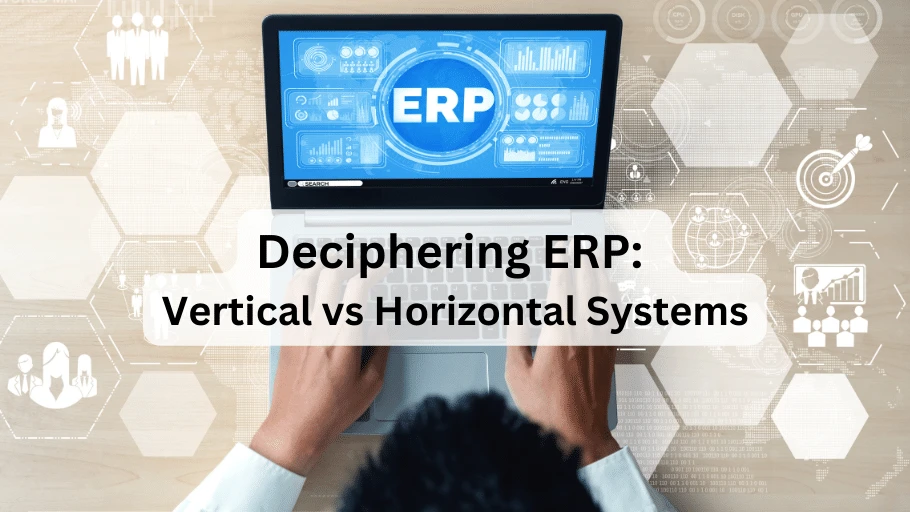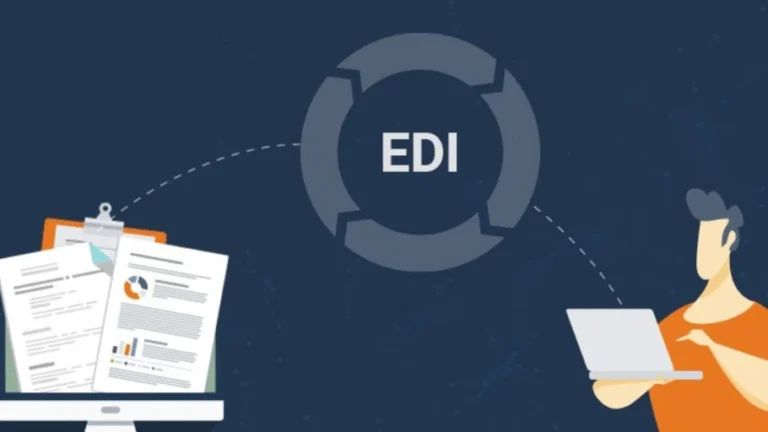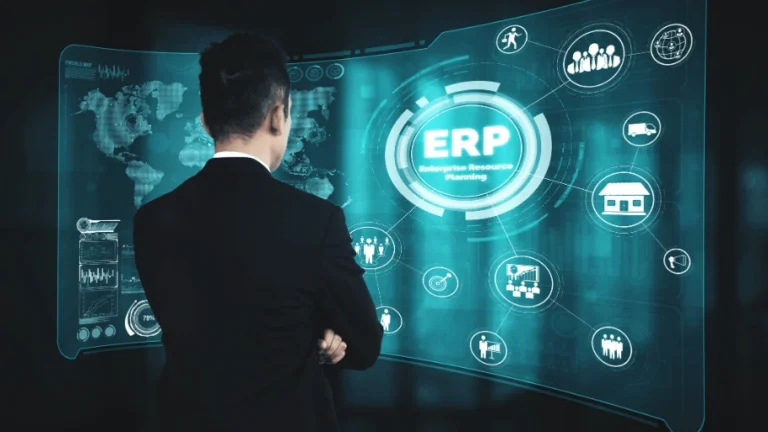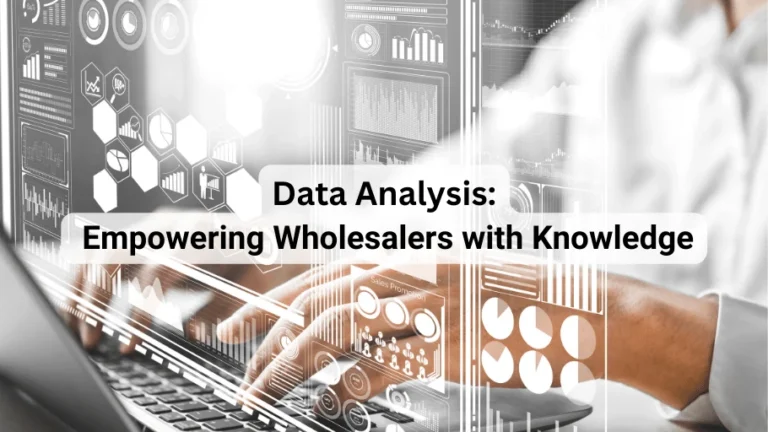A successful wholesale business relies on efficient operation processes. These processes include everything from inventory management to order processing and more.
Managing these operational processes can be challenging. An effective solution to streamlined wholesale management is Enterprise Resource Planning (ERP) software.
ERP solutions are in two categories: vertical and horizontal ERP systems. The effectiveness of your ERP for wholesalers can impact the success of your business operations. This makes choosing the right solution critical.
In this guide, we highlight the difference between horizontal and vertical ERP. This will help you choose the best software for your wholesale business.
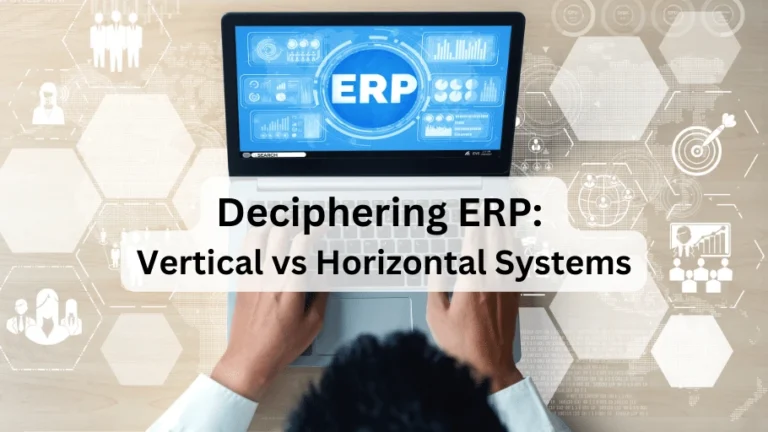
ERP Vertical vs Horizontal Quick Overview
Vertical ERP
- An industry-specific ERP solution designed to cater to the unique needs and processes of a particular industry.
- Comes with built-in, industry-specific features, reducing the need for complex customization.
- Designed around an industry’s best practices, offering tailored solutions.
- Scalable and understands the challenges specific to an industry as the business grows, providing smoother transitions.
- Vendors have a deep knowledge of the industry, providing valuable guidance during implementation and ongoing support.
Horizontal ERP
- A general ERP solution that can be used across multiple industries, offering broad and generic functionalities.
- Requires significant customization to fit the specific needs of a particular industry, which can increase complexity.
- Requires customization to align with specific industry’s best practices.
- Generally scalable but may not account for industry-specific growth challenges.
- Vendors may lack an understanding of the unique challenges and opportunities in a specific industry.
What is ERP?
ERP systems have a unified database that promotes better communication and collaboration among different departments. This centralization enhances efficiency and cohesion throughout the organization.
ERP integration can help businesses in many ways. These systems can automate and streamline tasks, improve customer service, and increase operational efficiency.
It is crucial to select an ERP solution that aligns with your business’s requirements and goals. This is where the distinction between vertical and horizontal ERP systems becomes important. Each type of system offers different benefits and is suited to different types of businesses.
What is Horizontal ERP?
They offer a range of general features like finance management, sales, procurement, and more. These solutions excel at integrating various business functions into a single, unified system. This improves data transparency and fosters better communication between departments.
What is Vertical ERP?
Vertical ERP systems are industry specific. This means that they cater to the unique requirements of a specific industry, such as manufacturing, retail, or wholesale.
These systems include all the features of a standard ERP solution but add industry-specific functions. For example, wholesale ERP software will include inventory management and demand forecasting. These specific features lead to efficient operations, reduced errors, and improved productivity.
ERP Vertical vs Horizontal: Which is Best for Wholesalers?
When choosing between a vertical and horizontal ERP, it is important to compare your wholesale business’s unique needs against what each type of system can offer.
We highlight the differences between horizontal and vertical ERP
Customization and Complexity
For wholesalers, the industry-specific features you need may not be available in a horizontal ERP. You will need to customize the software to meet your operational or workflow needs.
This customization can be both complex and costly. You will need skilled IT professionals to tailor the system, which can increase the initial investment.
Vertical ERP solutions are for specific businesses. Wholesale ERP software will have pre-built features that cater to the unique needs of wholesalers. These systems can be designed to be easily implemented. There is a lower need for customization, making these solutions less resource-intensive in the long run.
Industry Best Practices
Vertical wholesale ERP systems are purpose-built. The design of the software will include industry-specific functions and workflows to meet the needs of wholesalers. By including industry best practices in the design, vertical ERP software will fit into existing wholesale operations.
Scalability
Vertical ERP systems are designed to scale with growing businesses. As your wholesale business grows, the vertical ERP solution will cater to the challenges you may face. This adaptation can provide smoother transitions and less disruption as your operations expand.
Vendor Expertise
This broad approach can result in a lack of deep, industry-specific expertise. For example, a horizontal ERP vendor may not understand the unique dynamics of supplier management. This could lead to less effective implementation guidance and ongoing support.
Vendors of vertical ERP systems specialize in specific industries. This industry-specific expertise means their solutions cater to specific business needs.
For wholesalers, a vertical ERP vendor understands the ins and outs of the industry. This deep understanding enables them to provide valuable guidance during the implementation process. This ensures the system is set up to align with your specific operational needs.
They can also provide better help with any industry-specific challenges you might encounter. Their understanding of the unique opportunities within the wholesaling industry enables them to provide insights, helping your business thrive.
Vertical ERP Solution with Salesorder
At Salesorder, we offer a vertical ERP solution tailored for wholesalers.
Our ERP software is the total solution for wholesalers of all sizes. From inventory management to forecasting, we offer wholesaler-specific features that match your business needs. Our ERP software is adaptable to scale with your growing wholesale business.
Our team are experts in wholesale. With us, you will have access to training and support that understands the intricacies of the wholesale industry.
Talk with an expert to discuss how our vertical ERP solution can benefit your wholesale business.


